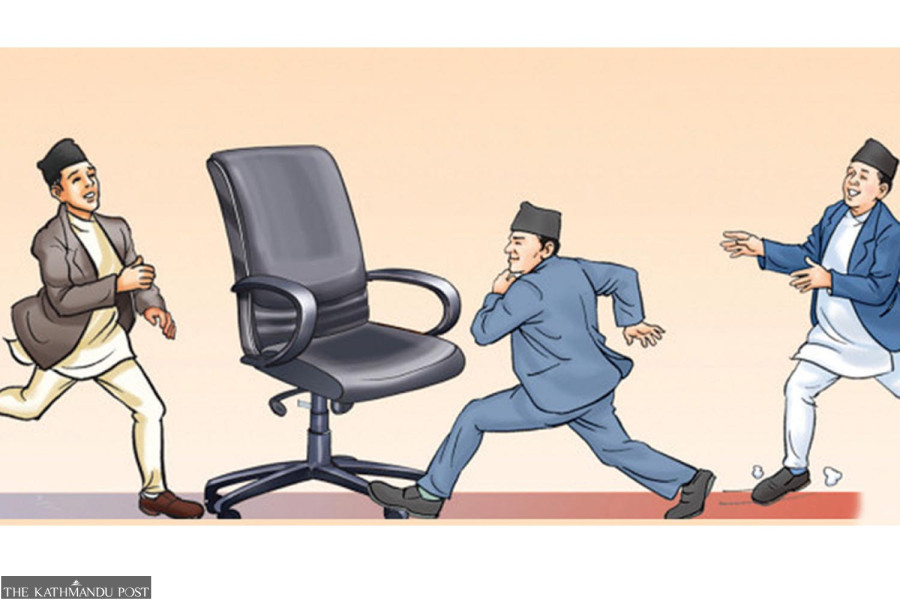Editorial
The mad rush
No sooner are the political parties out of the government, they want to jump right back in.
t is distressing to hear talks of a change in government, barely a month after the formation of the new coalition under Prime Minister Pushpa Kamal Dahal. The main opposition, Nepali Congress, has been asking for the resignation of Home Minister Rabi Lamichhane over his connection to a co-operative fund scam. Its leaders say the police cannot freely probe a sitting home minister. Yet the prime minister has dismissed the demand for such a parliamentary probe. The main opposition does not seem to be in a mood to let go of this issue easily. Besides this, second-rung Congress leaders are making all kinds of overtures towards the CPN-UML, the biggest party in the ruling coalition. Even some senior leaders like Shekhar Koirala say that unless the Congress and the UML come together, the country’s pressing problems will remain unsolved. For instance, there is a growing voice in the Congress party for a reform in the country’s electoral system, which, currently, cannot yield a majority for any one party. This, they argue, is a major cause of political instability and a big hurdle for Nepal’s development and prosperity. Only if the Congress and the UML join hands will it be possible to muster a two-thirds majority to amend the constitution to correct this supposed error.
Unlike Koirala and co, we do not think all seats in the federal lower house should be directly elected, for that will essentially kill the spirit of inclusion enshrined in the new constitution. But then, if most parliamentarians of the Congress and the UML believe, as a matter of principle, that the lower should only have first-past-the-post winners, then they can vote in favour of the motion even from the opposite ends of the Parliament. It is neither necessary (nor desirable) for the ruling and opposition parties to always negate each other. In a parliamentary system, the ruling and opposition parties are natural adversaries yet the system cannot function if they are not ready to play by the rules of the parliamentary game. The problem with post-1990 Nepali politics has been the reluctance of major parties to stay in the opposition for any time. No sooner that they are out of the government, and they want to jump right back in.
But it is insane to even consider removing an alliance that is under a month-old. Given this mindset of our leaders, there is also no certainty that just changing the electoral system will give the country stability. Even in Nepal’s not-so-distant past, single-party governments have come tumbling down due to factionalism and endless quest for power. Again, so early in the tenure of a ruling coalition, it is disingenuous to frame the need for reforms or change in certain areas in terms of a change in the government. It is rather the duty of the main opposition to closely scrutinise the actions of the government and if it is found consistently wanting in key areas, only then to seek to replace it. Otherwise, the game of musical chairs our political parties are playing risks discrediting the whole parliamentary system.




 13.12°C Kathmandu
13.12°C Kathmandu














